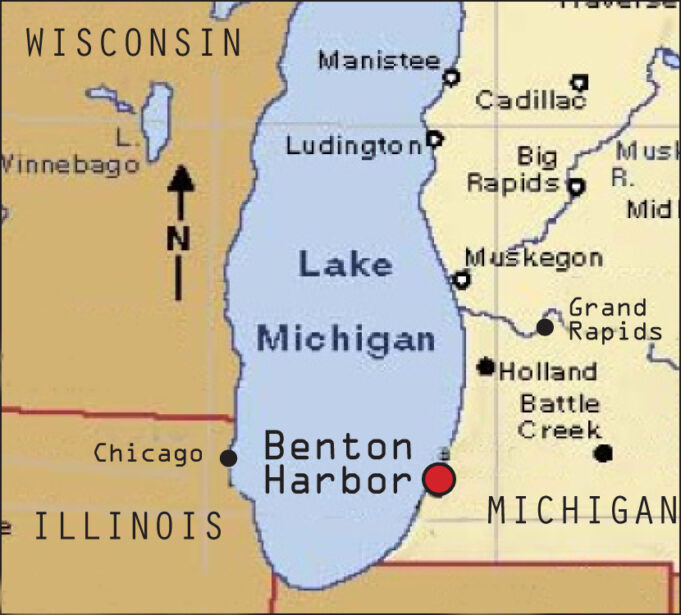Effecting quality of life concerns in real-time, local politics carry the most weight in the daily lives of the average American citizen. For Marcus Muhammad, his November 7 election to a third term as mayor of the City of Benton Harbor, Michigan, is an example of what he calls the success of servant-leadership and how coalition building creates trust and good governance among local constituents regardless of creed, class, or color.
Leading a municipality that has long suffered neglect and economic isolation, Mayor Muhammad told The Final Call that his past efforts in office, and his subsequent re-election as the city’s executive head, reflected not only an acknowledgment that “all politics is local,” but also the local electorate’s confidence in the leadership of his office and its track record of delivering tangible results.
“The local level is where things get done, and that’s what’s most important to people, that’s where your bread-and-butter issues are resolved,” Mayor Muhammad said. “On the state and federal level, it’s ‘pin-striped politics,’ (and) on the local level, it’s ‘kitchen and pocketbook politics,’” he said.
Mayor Muhammad explained it is important for citizens to become more knowledgeable of their local elected officials and how involvement in local politics affects the day-to-day lives of the people. However, there are limits to what an elected official can deliver or do, he explained.
“Campaigning is one thing, (but) governing is a whole different animal. You have to have strength, you have to have clout, you have to have power, (and) you have to have the people supporting you in order to govern and deliver in a democratic set-up or government,” he insisted.
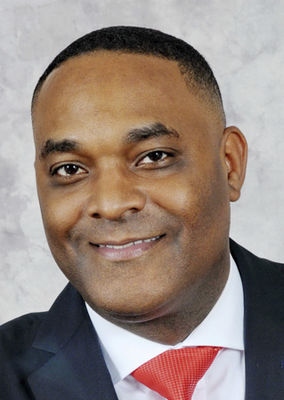
“State and federal politics lean more towards business, corporations, special interests, and NGOs (non-governmental organizations),” Mayor Muhammad said. He described the effectiveness of local officials who built political machines to leverage the interests of their constituents and those most organized among them.
“For the little man, your local politician is your first line of defense or offense, and Mayor Richard J. Daley understood that,” he said Daley was the architect of Chicago’s Democratic machine and a major player in the Democratic Party as Chicago’s mayor from 1955 to 1976. “Richard J. Daley controlled who would be in the statehouse and who could be in the White House,” Mayor Muhammad explained.
According to Census Reporter, Benton Harbor is a city on the Southeast shore of Lake Michigan and has a population of approximately 9,200 people, 87 percent of whom are Black, and has a median household income of $24,549 per year, far below the state’s median income of $63,202.
With educational and environmental concerns being among his city’s major needs, Mayor Muhammad said identifying such needs and garnering support from a broad coalition requires both educating the public and seeking their informed input.
Quoting the Honorable Minister Louis Farrakhan of the Nation of Islam, Mayor Muhammad said, “One cannot have illiteracy and democracy at the same time.” He also pointed out that to vote for one’s interests one must first know how to identify such interests and to organize around those interests.
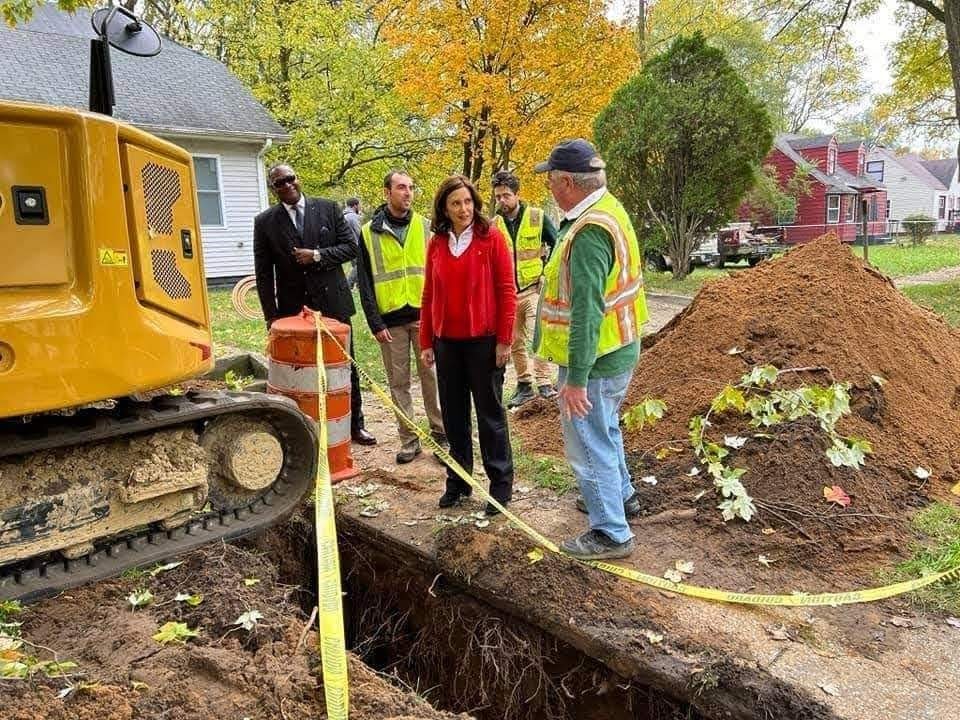
“This is why the Black Mayors of Michigan (BMM) was formed, so we can influence statewide and federal elections to maximize our opportunities and resources for our constituents, which of 15 cities is about 330,000 residents,” Mayor Muhammad said. He is also the organization’s chair. “One of our great victories was the over $130 million of debt relief to our public school systems in Benton Harbor, Muskegon Heights, Ypsilanti, Inkster, and Pontiac,” he said.
Another initiative spearheaded and advocated by the Benton Harbor mayor was the total removal of lead service lines from the municipal water supply and their replacement throughout his city. He said work was completed under budget and ahead of schedule.
While being the mayor of a city is a demanding, 24-hour-a-day responsibility, in Benton Harbor the role does not receive a salary, unlike the city manager, which is an appointed position. According to a 2017 ABC57 report, Benton Harbor’s mayor at that time made a stipend of “about $70 each month—earning $35 for each commission meeting he or she attends.”
According to the city’s website, bhcity.us, the charter for the city of Benton Harbor became effective on April 14, 1945, which lays out that the city would be governed by a council-manager system with nine elected commissioners and a city manager appointed by the commissioners.
As the chief administrator of Benton Harbor, the city manager is responsible for the day-to-day administration of the city, implements the council’s policies and programs and coordinates the delivery of services throughout the city through the various departments in city government.
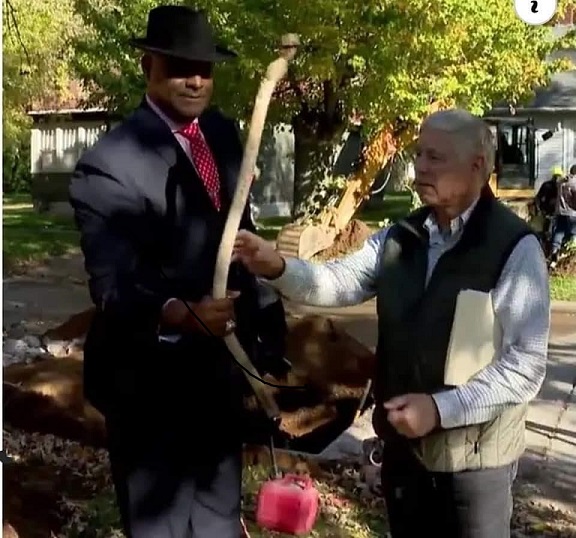
The issue of the mayor receiving a salary is a subject that has been brought up for years but that is not a motivating focus or goal of Muhammad.
The need for a new political paradigm
Stating that people for the most part are motivated by what is directly in front of them and what they can see, Professor Eric McDaniel, of the Department of Government at the University of Texas at Austin, told The Final Call that if statistics, such as crime rates, are declining nationally, but remain constant on the local level, people will not believe the data, and that is how self-interests come into play.
“One of the major trends among Black mayors is that (they) were getting elected when there was major White flight, and so as cities were falling apart, that is when Black mayors got in, so, their job (was) to keep the city alive while also trying to advance the needs of the Black population,” Prof. McDaniel explained.
“They’re hit with two very large jobs, they have to in many ways keep the White wealthy folk happy, so they will keep investing in the area, so oftentimes it has led to them having to sacrifice Blacks in order to save the city.”
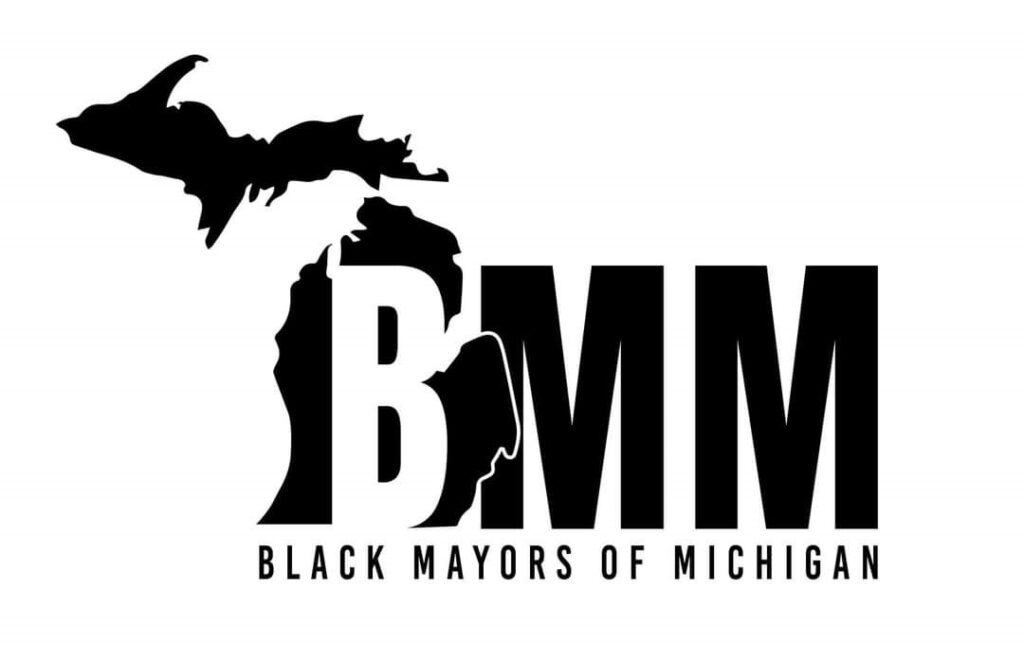
A dearth of local news coverage focuses more attention on national issues than on local concerns, which diminishes or prevents local constituencies from being properly informed, he continued. Prof. McDaniel said this makes it more difficult for citizens to discern what constitutes their self-interest and for local elected officials to inform the voters about what they are attempting to accomplish.
“A lot of the things that (people) are concerned about can actually be solved at the local and state level, but they’re told the president or Congress should do it and they’re mad with Congress for not acting on it,” Prof. McDaniel continued. “The issue of clean drinking water in Michigan, especially after what happened in Flint, nobody is going to protest that, but I do think that one of the biggest things that Black elected officials have is building coalitions across racial lines, across party lines, but at least getting business interests on board with the interests of poor Black people, that is a difficult coalition to get together,” he said.
To close the gap between the policies and decisions of local government and the needs and wants of the governed, Prof. McDaniel said it is critical that the people become knowledgeable of local politics. “They have to stay aware of what’s going on, pay attention to the local news, and this is where it gets very complicated because you can identify your governor, you can identify your congressperson,
You might be able to identify whoever runs your state, but a lot of times, who is the county commissioner, who is on the city council? Those things are a little more difficult,” he said. “When it comes to city politics, there is a lot more going on and that is more difficult for people to understand.”
Dr. Ray Winbush, director of The Institute for Urban Research at Morgan State University in Baltimore, agreed that the voting public must become more aware of the issues underpinning and driving local politics and elections and that this is where the rubber meets the road regarding people’s daily lives.
“Here in Baltimore, local elections usually turn out about 21 percent, so if I were an unscrupulous politician, I would say, ‘wow, I’ve only got to worry about 20 percent of the population who are really going to vote, that’s only one out of five persons,’” Dr. Winbush told The Final Call. “But this has a greater impact on our community because our communities are often in crisis.”
Local politicians, who focus more on the interests of their campaign contributors than on the needs of the masses lean on the dependency on those dollars at the expense of the people’s support, which too often reduces him or her to a tool for special interests, and they will fail to answer the needs of the voters, Dr. Winbush explained.
Regarding the effectiveness of coalition building and the interests of the local electorate, Dr. Winbush said the efforts of Mayor Marcus Muhammad in Benton Harbor, and his election to a third term in office represent an example of effective coalition building. He agreed that continuing to develop more by engaging the voters and private entities for a “win-win relationship” is in everyone’s interest.
“The person who builds a coalition successfully, like Brother Muhammad up in Michigan, they’re always going to be saying ‘what’s next?’ Dr. Winbush noted. “But I always think that coalitions have to have strong research about what is affecting the community, what does the community want? They have got to have a strong research component, even while they are solving least common denominator problems like the lead pipes,” he said.
Mayor Muhammad pointed out that the best method for collecting the talent, the people, and the wherewithal to accomplish the goals of good governance is found in the universal traditions of faith. He shared that his beliefs have guided him to make just decisions regardless of creed, class, or color.
“The Most Honorable Elijah Muhammad said that our unity is more powerful than an atomic bomb and also said our unity will solve 95 percent of our problems,” Mayor Muhammad explained. “The Honorable Minister Louis Farrakhan said, in quoting Fredrick Douglass, that ‘power concedes nothing without a demand,’ but (the Minister) added, ‘… a demand that is backed by a force’ and he said that that force is our unity.”












